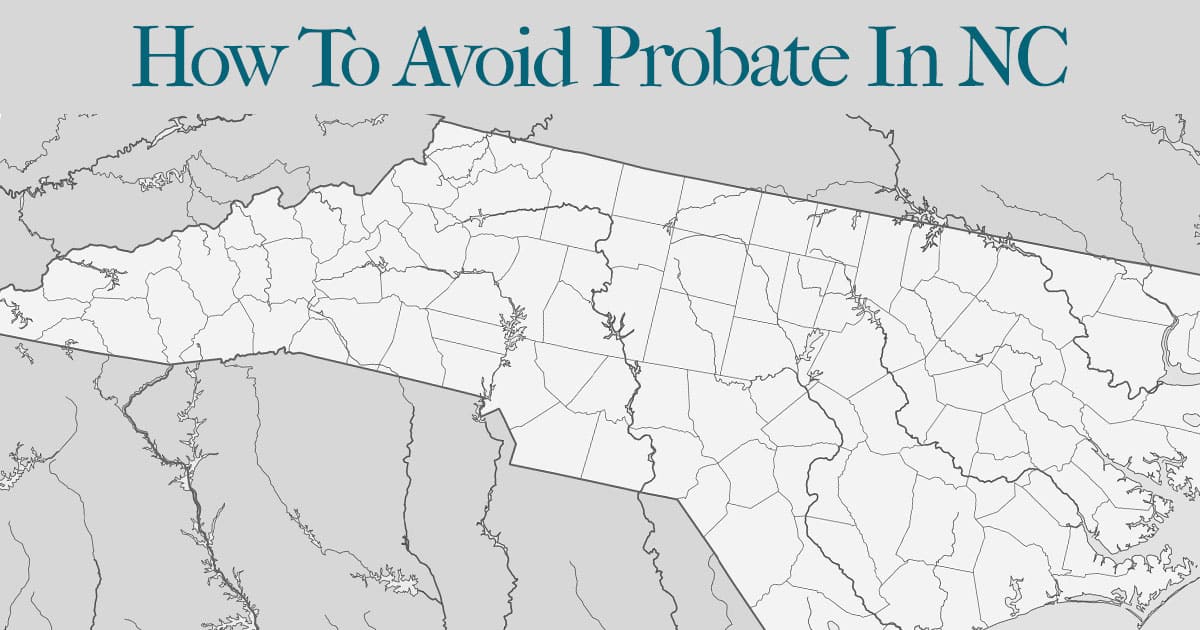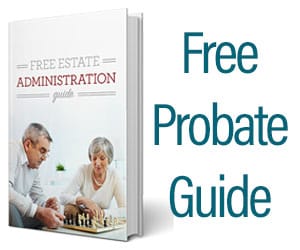There are numerous reasons why you might want to know how to avoid probate in North Carolina. The first is that probate tends to be a long, drawn out process. Occasionally a probate case can be settled in as little as three months; however, that’s the exception and not the rule. In most cases you can expect a probate case to last for more than a year. In addition, the probate process will create a number of legal documents and leave a paper trail that you would rather didn’t exist. For example, someone can easily go to the courthouse, and finding out specific details about the deceased’s financial assets and who inherited them is not difficult.
In addition to all that, probate can be expensive. There are numerous legal procedures that need to be followed, and most people find that hiring a probate lawyer is necessary in order to ensure that everything runs smoothly. Finally, probate can cause squabbles among family members. There is often disagreement about who gets what, which can turn probate into an unseemly situation. So with all that in mind, if you’re ready to find out how to avoid probate in North Carolina, let’s take a look at what can be done.
Ensure That All Accounts Have A Beneficiary Named
Most retirement, brokerage, and bank accounts have the option for one to specify who they would like to receive the funds after they pass away. The same is also generally true with life insurance policies. This is all achieved through a POD (Payable on Death) or TOD (Transferable on Death) clause which lets a person easily decide who they would like all of their funds to be left to. If a person has filled out all of these fields and indicated where they would like the funds to go, it can prevent this issue from having to go through probate later on. You can facilitate this by talking to all of your loved ones and ensuring that they have all of this information filled out.
If a person fails to name a beneficiary on their accounts, this can lead to a probate hearing where the court will need to determine who receives what portion of all of the deceased’s assets.
Joint Tenancy
Any property that is held in joint tenancy will automatically transfer to the surviving owner when the other person dies. This is a simple way to avoid large legal hassles, as situations that feature joint tenancy often do not go into probate. This arrangement is often best for couples, who are married or unmarried, and who wish to jointly purchase real estate or vehicles. In fact, it’s one of the most common ways for people to divide up property amongst themselves when one of the parties die.
Create a Living Trust
North Carolina gives you the option to set up a living trust. These living trusts can be useful because they can be set up to enable you to avoid probate for any asset. Whether that’s a vehicle, bank account, or piece of real estate. In order to set up a living trust, you need to set up a trust document, which is similar to a will, and then you need to transfer all ownership of the property over to yourself as the trustee of the trust. At this point all of the property in the trust will be controlled by the terms set up by the trust. Upon your death, the successor to this trust will be able to take over control of the trust and distribute it accordingly, without having to go through any probate proceedings.
Speak To A Probate Lawyer Before You Need To
Speaking to a probate lawyer is always a good idea, even if you don’t expect the problem to arise for months or even years. A probate lawyer can help you to ensure that all legal affairs are in good order, and that there will not be any problems distributing the deceased assets later on. Not only that, but a probate lawyer may help you to find simpler ways to distribute the property, so that everyone has less to worry about when the estate or the financial assets need to be distributed.
On top of that, a probate lawyer in North Carolina can also help you with estate planning. If all provisions are made for the distribution of an estate before a person dies, everything will proceed significantly more smoothly later on. However, what you should understand is that just because you’re avoiding probate doesn’t mean that you’re avoiding paying taxes. Regardless of whether the money is distributed through a will, or if the entire case has to go through probate, you’ll still need to pay taxes on all of the assets.
Get A Free PDF Guide To The Probate Process
Paying Taxes and Creditors
Another important point is that avoiding probate won’t preclude you from having to fulfill any legal obligations of the deceased. However, this does bring up an interesting point. If a creditor is going to make a demand on the deceased’s assets, if the case goes through probate, they only have a certain amount of time to file a claim. However, if everything is handled outside of probate, then a creditor can potentially demand compensation even a year or two later. A shorter window for creditors to demand payment may not necessarily be an advantage of going through probate, but you should be aware that by avoiding probate, a creditor can show up out of nowhere long after you’ve fairly distributed all of the asset.
Final Thoughts
If you’d like to avoid the lengthy process of probate, and the downsides that it entails, it’s important to plan in advance. By following the recommendations above you can ensure that when you do find it necessary to divide up an estate, or any other assets, the process will be as simple and painless as possible. If you want to learn more about the probate process and what practical steps you can take now to avoid it, be sure to contact Hopler, Wilms, & Hanna today


